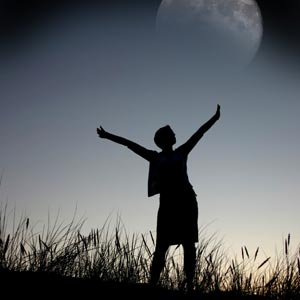Question : (Unedited)
Thank
you for your reply to an earlier question. I am confused as to what
happens after death to someone who is advanced spiritually. Am I correct
in that Nirvana is freedom from the cycle of rebirth? If so, what does being in
a state of Nirvana involve? Is this the same as being reborn in a higher realm?
Also, I understand it is the belief that the Dalai Lama and other spiritual teachers choose to be reborn as a human over and over to help lead others toward enlightenment. Would this not be a mission of a bodhisattva? If one chose not to be reborn, would this not be considered self-serving? If one is not reborn, can a Buddha continue to "guide" humans via prayers, etc?
Sorry for so many questions, but I am quite confused on this issue - Thanks!
Also, I understand it is the belief that the Dalai Lama and other spiritual teachers choose to be reborn as a human over and over to help lead others toward enlightenment. Would this not be a mission of a bodhisattva? If one chose not to be reborn, would this not be considered self-serving? If one is not reborn, can a Buddha continue to "guide" humans via prayers, etc?
Sorry for so many questions, but I am quite confused on this issue - Thanks!
My comment:
Hi
S,
A spiritually advanced person will most probably be reborn in a higher realm. Higher realm is still within the conditioned state of existence, which means after a period of time the being will die and be reborn; the cycle still goes on. Nibbana (Nirvana) is very different. It actually means "no more craving". It is an enlightened state, where the person has completely irredicated greed, hatred and delusion. There is no more rebirth into the cycle of births and deaths. Nibbana is not a place. It is a state where it is not bound by conditions. It is actually not within human ability to fully understand what Nibbana is. For a more elaborate explaination please click here: http://en.wikipedia.org/wiki/Nirvana
I do not know about the thinking of Dalai Lama or other spritual leaders. The "Bodhisatta" concept is a Mahayana idea. I practise the Theravada tradition. The Buddha did not guide humans through prayers. He guides us through his teachings. That is why we do not need the Buddha in person to show us the way. That's why, although the Buddha is not around, his teachings (The Dhamma) are our guiding light.
A spiritually advanced person will most probably be reborn in a higher realm. Higher realm is still within the conditioned state of existence, which means after a period of time the being will die and be reborn; the cycle still goes on. Nibbana (Nirvana) is very different. It actually means "no more craving". It is an enlightened state, where the person has completely irredicated greed, hatred and delusion. There is no more rebirth into the cycle of births and deaths. Nibbana is not a place. It is a state where it is not bound by conditions. It is actually not within human ability to fully understand what Nibbana is. For a more elaborate explaination please click here: http://en.wikipedia.org/wiki/Nirvana
I do not know about the thinking of Dalai Lama or other spritual leaders. The "Bodhisatta" concept is a Mahayana idea. I practise the Theravada tradition. The Buddha did not guide humans through prayers. He guides us through his teachings. That is why we do not need the Buddha in person to show us the way. That's why, although the Buddha is not around, his teachings (The Dhamma) are our guiding light.


